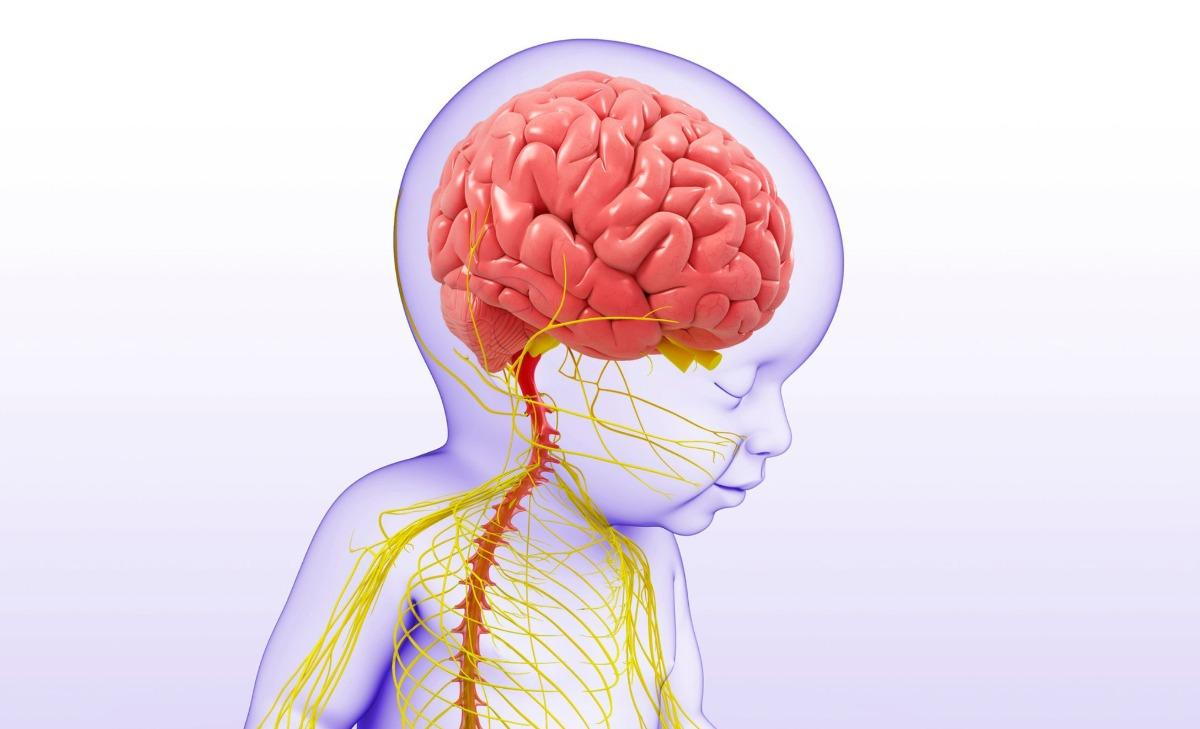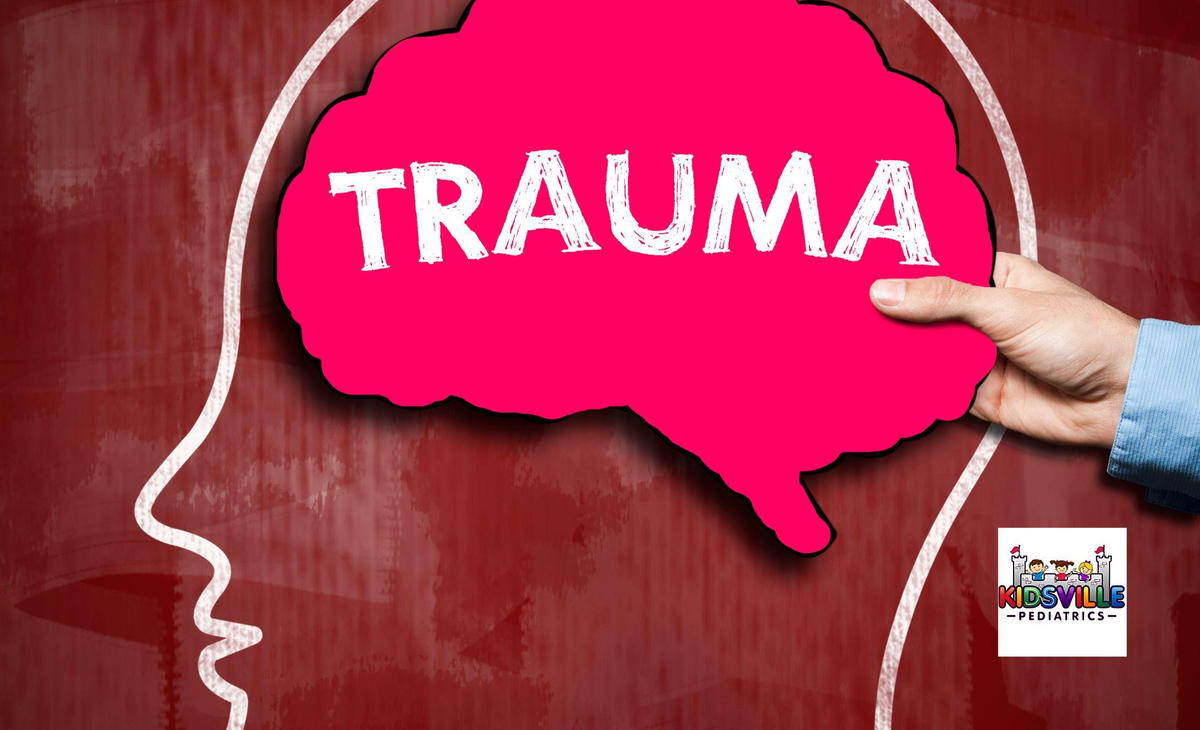
As a parent, you want to give your child the best start in life, and understanding how their brain develops is a key part of that journey. Every baby’s brain has an incredible potential to learn and grow, but it is also sensitive to negative experiences, even before birth. By the time your child enters kindergarten, their brain will have more than doubled in size, but every child reaches developmental milestones at their own pace. Connecting with a trusted pediatrician in Southlake can provide guidance on supporting infant learning from the start.
The Rapid Growth of the Early Years

Brain development is a complex and fascinating journey that begins long before a child is born. For a comprehensive look at infant learning and how your child's brain grows, it's essential to start with the prenatal months. During this critical period, the foundations for future learning and development are set. At Kidsville Pediatrics Southlake, we are committed to helping parents understand the incredible growth occurring in their child’s brain and how to nurture it.
Prenatal Brain Development
Brain development begins around two weeks after conception and continues into young adulthood. While much of this early growth is guided by genetics, environmental factors play a significant role. For example, maternal nutrition is crucial during pregnancy. A deficiency in essential nutrients like folic acid or exposure to toxins such as alcohol can have long-lasting impacts on your baby's brain development.
During early pregnancy, the brain forms from a structure called the neural tube. This tube eventually becomes the central nervous system, which includes the brain and spinal cord. As this tube develops, it divides into different sections that will form distinct parts of the brain, such as the forebrain, midbrain, and hindbrain.
The Role of Neurulation, Proliferation, and Migration
The process of neurulation, which begins just two weeks after conception, is where the foundation of the brain’s structure is laid. The neural tube folds and closes, creating a pathway for the formation of the central nervous system. After this, the stage of proliferation occurs. In this phase, brain cells multiply rapidly to form the primary structures of the brain. Interestingly, the brain of a newborn actually has more neurons than it will have in adulthood, due to a process called apoptosis or programmed cell death, which refines and reduces neuron numbers.
Next, the cells that will become neurons migrate to their final destinations in the brain. This migration follows a specific pattern that establishes the layers of the cerebral cortex, which is responsible for complex thought processes. By the time your baby reaches 25 weeks of gestation, all six layers of the cortex are fully formed.
The Importance of Synaptogenesis and Synapse Pruning
Synaptogenesis is the formation of connections between neurons called synapses. This process begins around the 23rd week of gestation and continues into early childhood. These synaptic connections enable your child to learn, process information, and respond to their environment.
Following synaptogenesis, a process called synapse pruning occurs. Synapses that are not frequently used are eliminated, allowing the brain to become more efficient. This pruning is heavily influenced by your child’s experiences and interactions. The timing of synapse pruning varies across different regions of the brain. For example, areas involved in sensory processing complete pruning earlier, while regions involved in complex thought and emotional regulation continue developing through adolescence.
Myelination: The Final Step
The last major stage in brain development is myelination. This process involves wrapping the neurons' axons in a fatty substance called myelin, which enhances the speed and efficiency of neural communication. Myelination starts in the brain's sensory and motor areas and progresses to areas involved in higher cognitive functions. This process continues into adolescence, highlighting the ongoing nature of brain development.
Support Infant Learning: Parenting Tips

From the moment your baby is born, they begin building brain connections through everyday experiences. These connections are strengthened by positive interactions with parents and caregivers, and through sensory exploration of the world around them. The quality and quantity of care, stimulation, and interaction your child receives in these early years are crucial in shaping their brain development.
Different areas of the brain control different abilities, such as movement, language, and emotion, and they develop at various rates. Brain development builds on itself, meaning that as connections form, they link with each other in increasingly complex ways. This allows your child to develop more sophisticated abilities, such as problem-solving, communication, and emotional regulation.
The Power of Loving, Responsive Relationships

From birth, your baby will look to you for interaction, whether it’s cooing, smiling, or crying. Each of these cues is an opportunity to engage in what’s known as the “serve and return” process, which is fundamental to brain development. When you respond to your baby’s needs—by talking, singing, reading, or playing—you are literally building their brain. This is why creating a safe, stable, and nurturing environment is so important for your child’s early years. Your local pediatrician in Southlake can offer personalized advice on fostering these essential interactions.
This period is crucial for infant learning and the overall building of the foundation of lifelong skills such as communication, problem-solving, and relationship-building. As a pediatrician, our team understands how important these early interactions are and want to provide you with guidance on how to support your child’s growth.
The Importance of Bonding and Attachment
Your child’s sense of security and confidence is deeply influenced by your relationship with them. Positive, nurturing interactions help create a bond known as attachment, which is essential for your child’s emotional well-being. When children feel secure, they are more likely to be curious, explore their surroundings, and develop well. This strong emotional foundation allows them to handle conflicts, manage stress, and build healthy relationships as they grow.
Tips for Strengthening Bonding:
Make Time for Cuddles: Physical affection such as cuddling, holding hands, and gentle stroking helps your child feel calm and safe. It releases natural chemicals in their body that promote brain growth and emotional security. You can never spoil a child with too much love, so enjoy these moments of closeness.
Play Together: Engaging in playtime is a fantastic way to show your child that you care. Play doesn’t need to be expensive; simple games, storytelling, or a visit to the park can provide invaluable learning experiences. Your attention and involvement mean more than any toy.
Making Everyday Moments Meaningful
Daily activities like mealtimes, bath time, and even car rides are perfect opportunities to connect with your child. These routine moments can be transformed into meaningful interactions that foster learning and bonding.
Ways to Connect During Daily Routines:
During Bath Time: Use this time for gentle massages or playful water games. Sing songs or talk about your day to make the experience enjoyable and comforting.
While Running Errands: Turn mundane activities like shopping into an adventure. Point out interesting things you see along the way, ask questions, and encourage your child to observe their surroundings.
The Value of Special Time
In the hustle and bustle of daily life, setting aside a few minutes of “special time” with your child can have a tremendous impact. Let them choose an activity they enjoy, whether it’s reading a book, playing a game, or simply talking about their day. This dedicated time shows your child that you value their interests and enjoy being with them.
Positive Communication and Guidance
It’s natural for children to test boundaries and exhibit challenging behaviors as they grow. Instead of focusing on what not to do, use positive language to guide them. For example, say, “We use gentle hands,” rather than “No hitting.” It’s important to make sure your child knows that it’s the behavior, not them, that you disapprove of.
It’s Okay to Ask for Help
Remember, you are the most crucial part of your child’s world, but you don’t have to do it alone. If you’re feeling overwhelmed or concerned about your relationship with your child, reaching out for support from a pediatrician in Southlake, TX should guide you through the challenges of parenting and support your child’s healthy development.
The Impact of Adverse Childhood Experiences

Adverse childhood experiences (ACEs) are traumatic events that can have lasting impacts on a child’s mental and physical health, extending well into adulthood. As a parent or caregiver, it’s crucial to understand what ACEs are, how they can affect your child, and what steps you can take to provide support. If you’re concerned about your child’s mental or physical health, consider consulting a Southlake pediatrician for guidance and support.
What Constitutes an Adverse Childhood Experience?
ACEs encompass a variety of negative experiences that a child might go through, such as abuse, neglect, and household dysfunction. These events can be deeply traumatic, causing toxic stress that disrupts healthy brain development and emotional regulation. Common examples of ACEs include:
Physical, emotional, or sexual abuse
Neglect, either physical or emotional
Domestic violence
Substance abuse or mental illness in the household
Parental separation or divorce
Incarceration of a household member
While not every child exposed to these experiences will have long-term negative outcomes, the risk increases with the number of ACEs they endure.
How ACEs Impact a Child's Development
A child’s brain is highly sensitive and adaptable, constantly learning from the environment. When a child experiences positive interactions, such as supportive parenting and a safe environment, they are likely to develop healthy cognitive and emotional skills. However, when exposed to ACEs, their brain may enter a state of prolonged stress, which can alter brain functions.
Toxic Stress and Its Effects
ACEs often lead to toxic stress—a type of stress response that is severe and prolonged. Unlike typical stress, toxic stress occurs when a child’s body is constantly in “fight-or-flight” mode. This can lead to an overproduction of stress hormones like cortisol and adrenaline, affecting areas of the brain responsible for learning, memory, and emotional regulation.
Children exposed to ACEs may struggle with:
Difficulty concentrating or learning in school
Emotional outbursts or frequent mood changes
Trouble forming relationships with peers and family members
Health issues, such as asthma, headaches, or stomach problems
These symptoms may not appear immediately and could develop gradually as the child processes the traumatic events. If you notice any of these signs, it’s essential to consult a healthcare provider to assess the situation and provide appropriate interventions.
Long-Term Consequences of ACEs
The effects of adverse childhood experiences often persist into adulthood, manifesting as both physical and mental health conditions. Adults who experienced multiple ACEs as children are at a higher risk for:
Mental Health Issues: Conditions like anxiety, depression, PTSD, and substance use disorders are common among individuals with a history of ACEs.
Chronic Health Conditions: Prolonged exposure to toxic stress can lead to chronic illnesses, including heart disease, diabetes, and even cancer.
Behavioral Challenges: High-risk behaviors, such as smoking, substance abuse, and unsafe sexual practices, are more prevalent among those who have experienced ACEs.
Research indicates that individuals with four or more ACEs have a significantly reduced life expectancy compared to those without any ACEs. Early intervention and support are key to mitigating these long-term effects.
Supporting Children with ACEs
If your child has experienced an adverse event, early intervention is crucial. Here are some steps you can take to provide support and minimize the impact of ACEs:
Create a Safe and Nurturing Environment
Make sure that your child feels physically and emotionally safe. Establish a routine, be consistent with rules, and provide reassurance. Your child needs to know that they can rely on you for support and protection.
Encourage Open Communication
Let your child express their feelings and concerns without fear of judgment or punishment. Encourage them to speak up about any experiences and be sure to validate their emotions. This can help them process what they’ve been through and reduce feelings of isolation.
Seek Professional Help
Therapy can be incredibly beneficial for children who have experienced ACEs. A trained mental health professional can provide coping strategies and help your child develop resilience. Speak with a reliable pediatric center to get a referral to a therapist who specializes in trauma and childhood development.
Preventing Adverse Childhood Experiences
While not all ACEs can be prevented, there are steps you can take to reduce the risk and provide a protective environment for your child:
Build Strong Family Bonds: Spend quality time together, and create an open and trusting family dynamic.
Monitor Media Exposure: Limit your child’s exposure to violent or distressing content that could trigger trauma responses.
Teach Coping Skills: Help your child develop healthy coping mechanisms for dealing with stress, such as deep breathing, journaling, or engaging in hobbies they enjoy.
Model Positive Behavior: Children learn by observing adults. Show them how to handle conflicts, manage stress, and express emotions in healthy ways.
Pediatrician Near Me: Kidsville Pediatrics Southlake
If your child is showing signs of distress or if you’re struggling to manage their behavior, don’t hesitate to seek professional assistance. A pediatrician in Southlake can guide you toward the right resources, including mental health support and community programs. Remember, early intervention can make a significant difference in your child’s long-term health and well-being.
Adverse childhood experiences can have profound effects on a child’s development, but with the right support and interventions, these impacts can be mitigated. By creating a safe and nurturing environment, encouraging open communication, and seeking professional help when needed, you can help your child thrive despite their challenges. If you’re concerned about your child’s health or behavior, contact us at Kidsville Pediatrics Southlake today to discuss infant learning and get the support you need.
Click to Schedule An Appointment. Or visit/call our clinics: Kidsville Pediatrics Mansfield TX: 682-341-3910; 1759 Broad Park Circle S, Suite 201 & 205, Mansfield, TX Kidsville Pediatrics Southlake: 682-345-8010; 2813 W. Southlake Blvd Suite 100 Southlake, TX Kidsville Pediatrics McKinney: 469-885-9400; 5881 Virginia Pkwy. Suite 300 Mckinney, TX |
